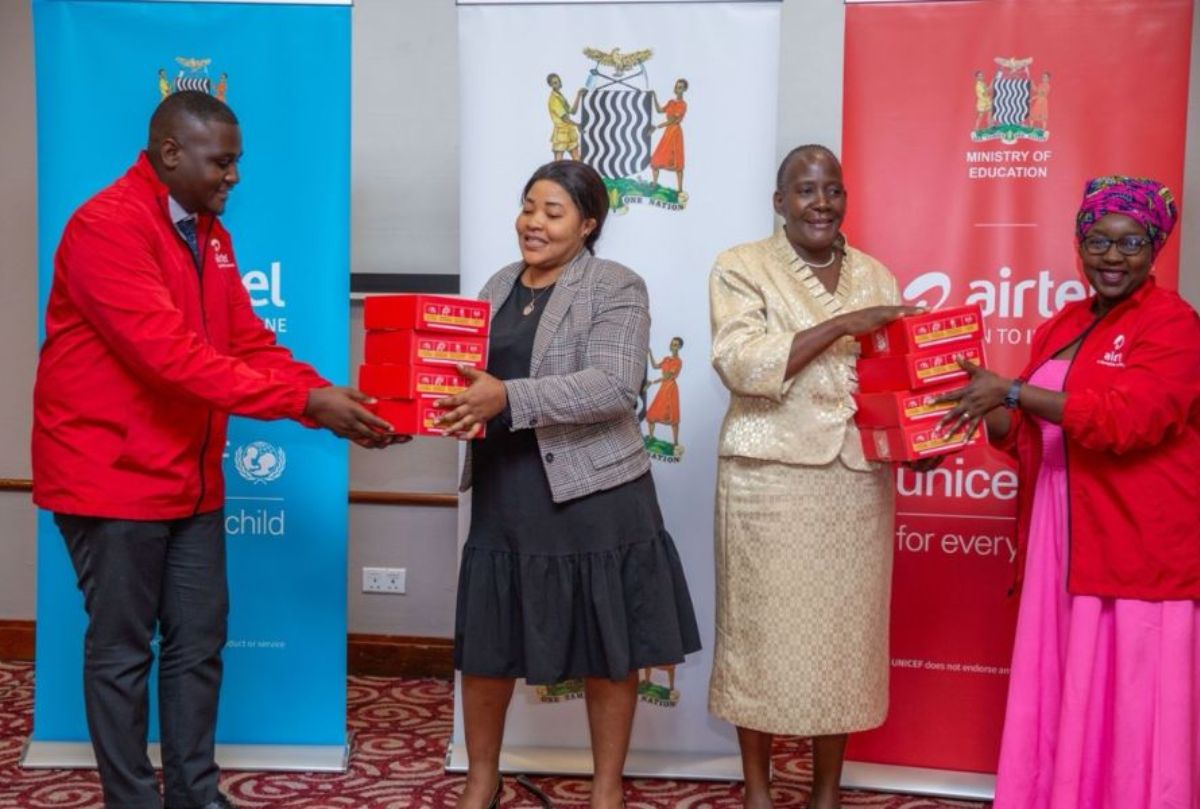Airtel and UNICEF are making significant strides in transforming the educational landscape in Zambia, having connected 100 schools to the Internet as part of their ongoing partnership. Launched in January, the partnership seeks to improve access to quality education through digital connectivity, bringing new opportunities for both students and teachers across the country.
The partnership aimed to attain or at the very least “progress the fourth sustainable development goal, ‘education for all’,” UNICEF stated in January.
Expanding Digital Access Across Zambia
The partnership seeks to close Zambia’s digital gap by connecting schools in urban and remote areas to the Internet.
Read more: IHS Nigeria and UNICEF launch a digital impact initiative
Given Zambia is a nation beset by limited Internet connectivity, the partnership is deemed a major step forward as it will furnish the students with vast educational resources, including e-learning platforms, academic content, and interactive tools that enhance their learning experience.
Empowering teachers and students through UNICEF’s Learning Passport
Central to the initiative is the Learning Passport, an innovative digital platform developed by UNICEF. The platform provides free access to quality educational content for children and young people, including videos, lesson plans, and interactive exercises. Students will be able to learn at their own pace, making use of a range of digital resources that were previously unavailable to many.

The Learning Passport aims to give all learners, including those in rural and underserved communities, access to the same educational opportunities.
Additionally, the platform is designed to be inclusive, with features that cater to students with disabilities, ensuring they are not excluded from the digital learning revolution.
Read more: Why computer programming should be for all students
Airtel and UNICEF in Zambia, in conjunction with the Zambian Ministry of Education, recently conducted a blended learning training session for 50 educators from 50 schools across the Eastern, Lusaka and Southern Provinces. In this training, participants were acquainted with the digital Learning Passport and optimised the routers supplied to their respective institutions.
Also, the impact of vandalism and its impact on this project was acknowledged during the program. In the inauguration, Dr Brenda Musanya, a representative from the Ministry of Education’s Directorate of Open and Distance Learning (DODE), urged educators to protect the routers diligently and to maximise the training opportunity by posing numerous enquiries to facilitate connectivity for the designated schools.
